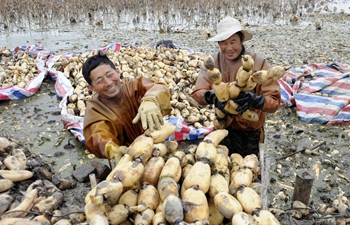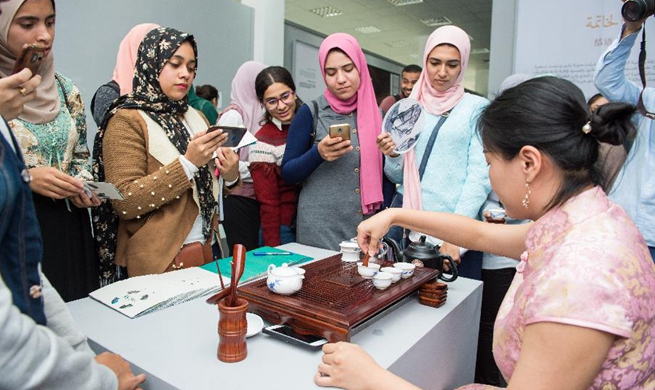SYDNEY, Nov. 23 (Xinhua) -- Artificial intelligence technology that digitally identifies plants and animals suspected as biosecurity threats could form a formidable tool to keep Australia safe from pests, other invasive species and diseases, according to the latest research.
Researchers at Murdoch University are working on a major project to identify the biosecurity risks within seconds, with significant savings in time and money, local media reported on Friday.
"Artificial intelligence has now got to a point where it is very quick and it's very accurate," the university's Professor Simon McKirdy told the ABC news channel.
"It could prove to be a very effective triage tool for us in screening samples in the field and in the laboratory," he said.
"We're taking the process of facial recognition and applying it to other organisms, whether they be a rat, gecko or insect."
"It starts to identify particular features of different animals and plants that we as humans wouldn't necessarily pick up as being a distinguishing point."
The latest software is learning new information and adapting at an impressive pace, assisting biosecurity specialists rather than replacing them, reported the channel.
For example, if it screens 100 images, it will do the triage and come back and say "We actually think there's four images here that need to be looked at by the human expert," said McKirdy.
"Then the human expert can spend a lot more time making sure they get the right answer on the diagnosis."
The latest study is in line with a national initiative that involves more than 300 million Australian dollars (217.6 million U.S. dollars) invested to beef up biosecurity measures over the next five years.
The artificial intelligence technology can first be rolled out at airport checkpoints and state border crossings, said McKirdy.
"Our aim is to get this to the point where we could see biosecurity officers at borders, in the field, or even farmers being in a position where it could be an app on a phone that allows them to take a good image," he said.
"Then in close to real time they can get a response from the system that there's either a good chance this is a pest of concern or not."













